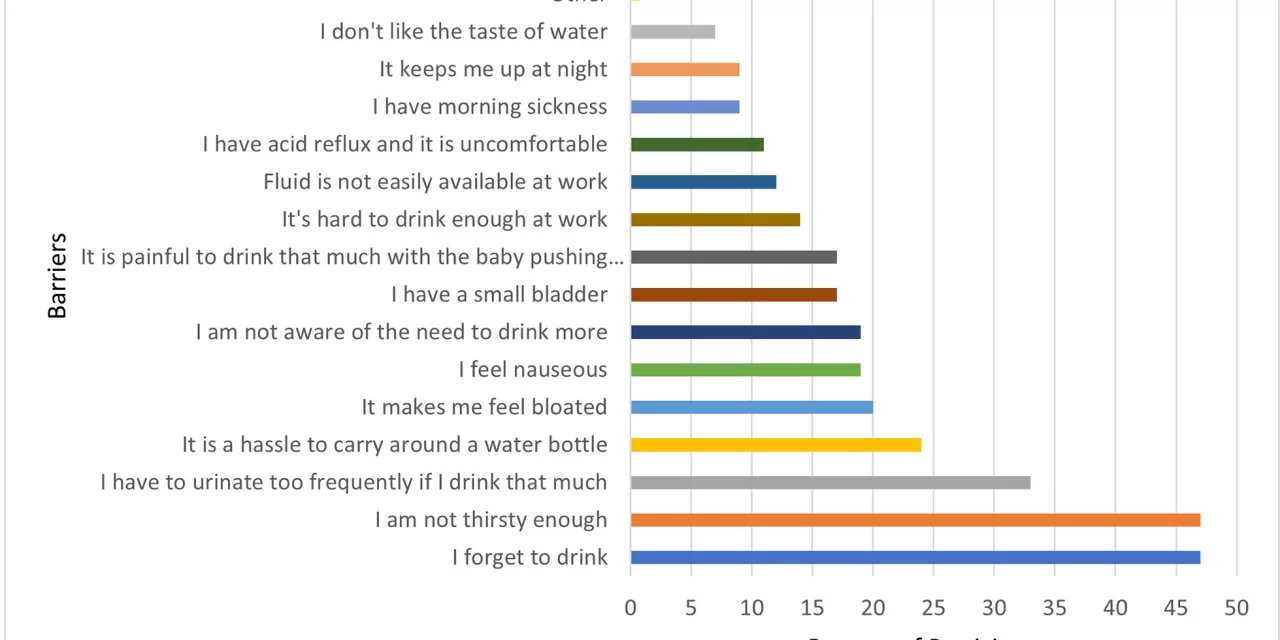August 14, 2024
Maternal hydration is a critical aspect of a healthy pregnancy, yet a new study reveals that many pregnant women in the United States are not drinking enough water. The research, conducted by an interdisciplinary team at Penn State College of Health and Human Development, highlights significant gaps in hydration knowledge and practices among expectant mothers.
According to guidelines from the American Pregnancy Association and the American College of Obstetricians and Gynecologists, pregnant women should consume between 1.9 and 3 liters of water daily. This recommendation varies based on individual factors such as weight, trimester, physical activity level, and climate. Adequate hydration is essential for various aspects of maternal and fetal health, including maintaining amniotic fluid levels, supporting fetal brain development, and reducing the risk of low birth weight.
Despite the clear guidelines, the study, recently published in PLOS Digital Health, found that nearly two-thirds of surveyed pregnant women were either unaware of these recommendations or were not meeting them. Out of 137 participants, approximately 63% did not know the hydration guidelines, and 67% were not meeting the recommended water intake.
Danielle Symons Downs, Professor of Kinesiology and Obstetrics and Gynecology at Penn State, along with Abigail Pauley, a postdoctoral fellow, led the research. Their survey revealed that common barriers to adequate water consumption included a lack of thirst, forgetfulness, and the inconvenience of frequent urination.
“Hydration is crucial, especially as pregnancy progresses into the second and third trimesters. Proper fluid intake supports the formation of amniotic fluid, nutrient transport, and digestion,” Downs said. “Our previous research has shown a direct impact of hydration levels on fetal birth weight.”
Encouragingly, the study also found that pregnant women are open to using digital technology to improve their hydration habits. Sixty-nine percent of participants expressed willingness to use digital tools to monitor their water intake, and 67% showed interest in smart water bottles that track daily water consumption and sync with smartphone apps.
“Smart water bottles have shown promise in other contexts, such as encouraging fluid intake among people with kidney stones,” Downs noted. “Our findings suggest these tools could be effective for pregnant women as well.”
The research also highlighted a potential solution in the form of the Healthy Mom Zone study, a larger initiative aimed at developing personalized digital interventions for pregnant women. This initiative will further investigate the impact of hydration on maternal and fetal health.
“The United States faces some of the highest birth morbidity and mortality rates among high-income nations,” Downs said. “Our goal is to understand why this is the case and to develop strategies that can improve birth outcomes through better hydration practices and other interventions.”
For more details on the study, refer to Abigail M. Pauley et al, Every sip counts: Understanding hydration behaviors and user-acceptability of digital tools to promote adequate intake during early and late pregnancy, published in PLOS Digital Health (2024). DOI: 10.1371/journal.pdig.0000499.












